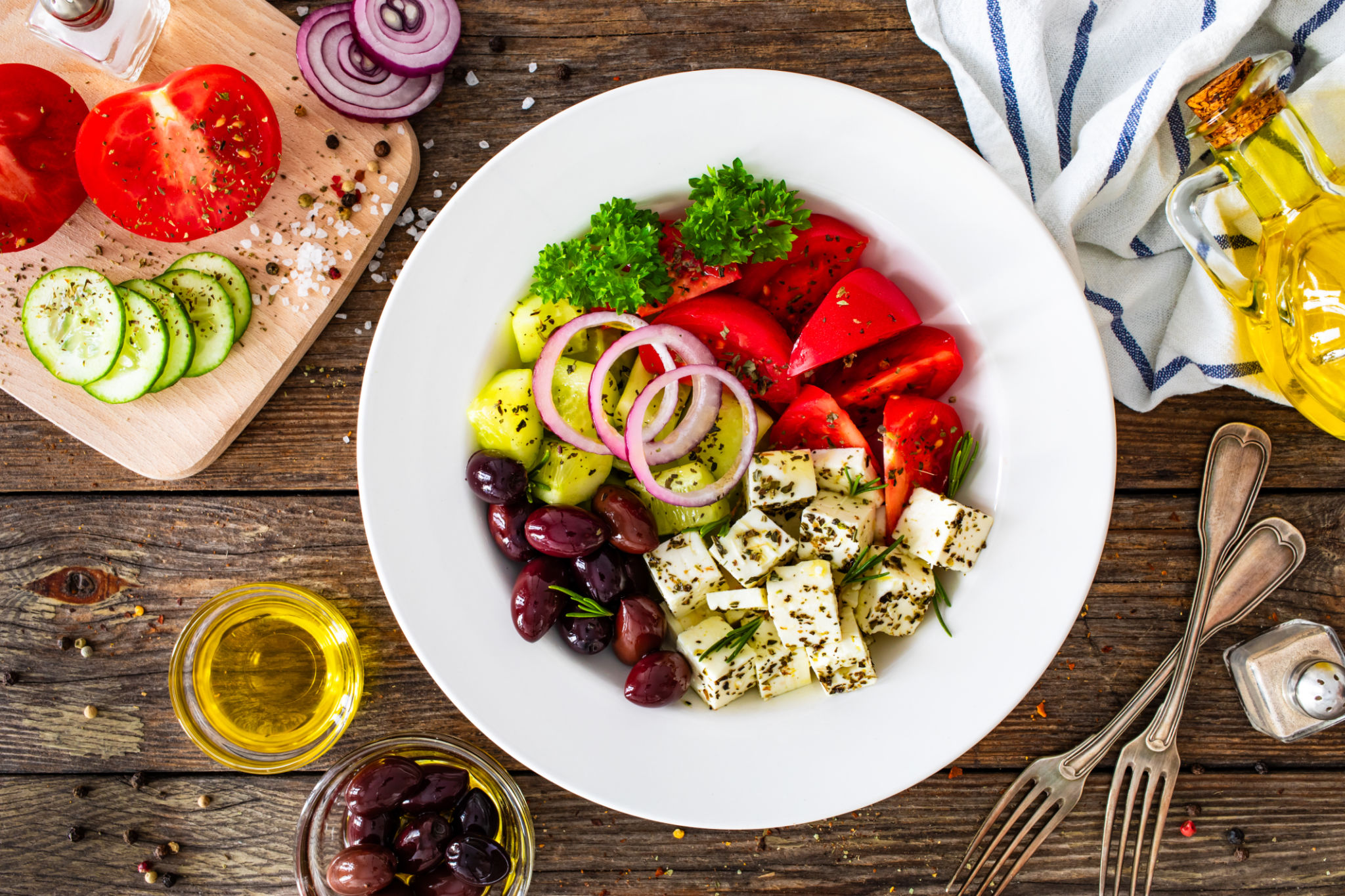A Comprehensive Guide to Mediterranean Ingredients and Dishes
Introduction to Mediterranean Cuisine
Renowned for its vibrant flavors and health benefits, Mediterranean cuisine is a beloved choice across the globe. This diet primarily consists of fresh vegetables, fruits, nuts, seeds, legumes, whole grains, and olive oil. It's not just about the ingredients, but also the way they are harmoniously combined to create flavorful and nutritious dishes.

Key Ingredients in Mediterranean Cooking
Olive Oil
At the heart of Mediterranean cooking is olive oil, often referred to as "liquid gold." This cornerstone ingredient is used generously in cooking and as a dressing. Rich in monounsaturated fats and antioxidants, it contributes to the diet's healthful reputation.
Fresh Vegetables and Fruits
Mediterranean cuisine heavily emphasizes fresh vegetables like tomatoes, cucumbers, zucchini, eggplants, and leafy greens. Fruits such as citrus, figs, and grapes are also staples. These ingredients form the basis of many dishes and are often served raw or lightly cooked.

Whole Grains
Whole grains such as bulgur, farro, barley, and couscous are integral to the diet. These grains provide a hearty base for salads and side dishes, offering a rich source of fiber and essential nutrients.
Popular Mediterranean Dishes
Greek Salad
A quintessential dish, Greek salad combines fresh tomatoes, cucumbers, olives, and feta cheese dressed with olive oil. It's a simple yet flavorful dish embodying the essence of Mediterranean freshness.
Pasta Primavera
This Italian classic features pasta tossed with a medley of fresh vegetables such as bell peppers, broccoli, and carrots. It's a delightful way to enjoy seasonal produce with a touch of olive oil and Parmesan cheese.

Tabbouleh
Originating from Lebanon, tabbouleh is a vibrant salad made with bulgur wheat, parsley, mint, tomatoes, and onions. Dressed with lemon juice and olive oil, it's a refreshing accompaniment to many meals.
The Health Benefits of Mediterranean Ingredients
The ingredients in Mediterranean cuisine offer numerous health benefits. For instance, the high content of healthy fats from olive oil and nuts helps improve heart health. Additionally, the abundance of fruits and vegetables provides essential vitamins and antioxidants that boost overall wellness.

Moreover, the focus on whole grains ensures a good intake of fiber, which aids in digestion and helps maintain steady energy levels. These aspects make Mediterranean cuisine not only delicious but also an excellent choice for maintaining a balanced diet.
